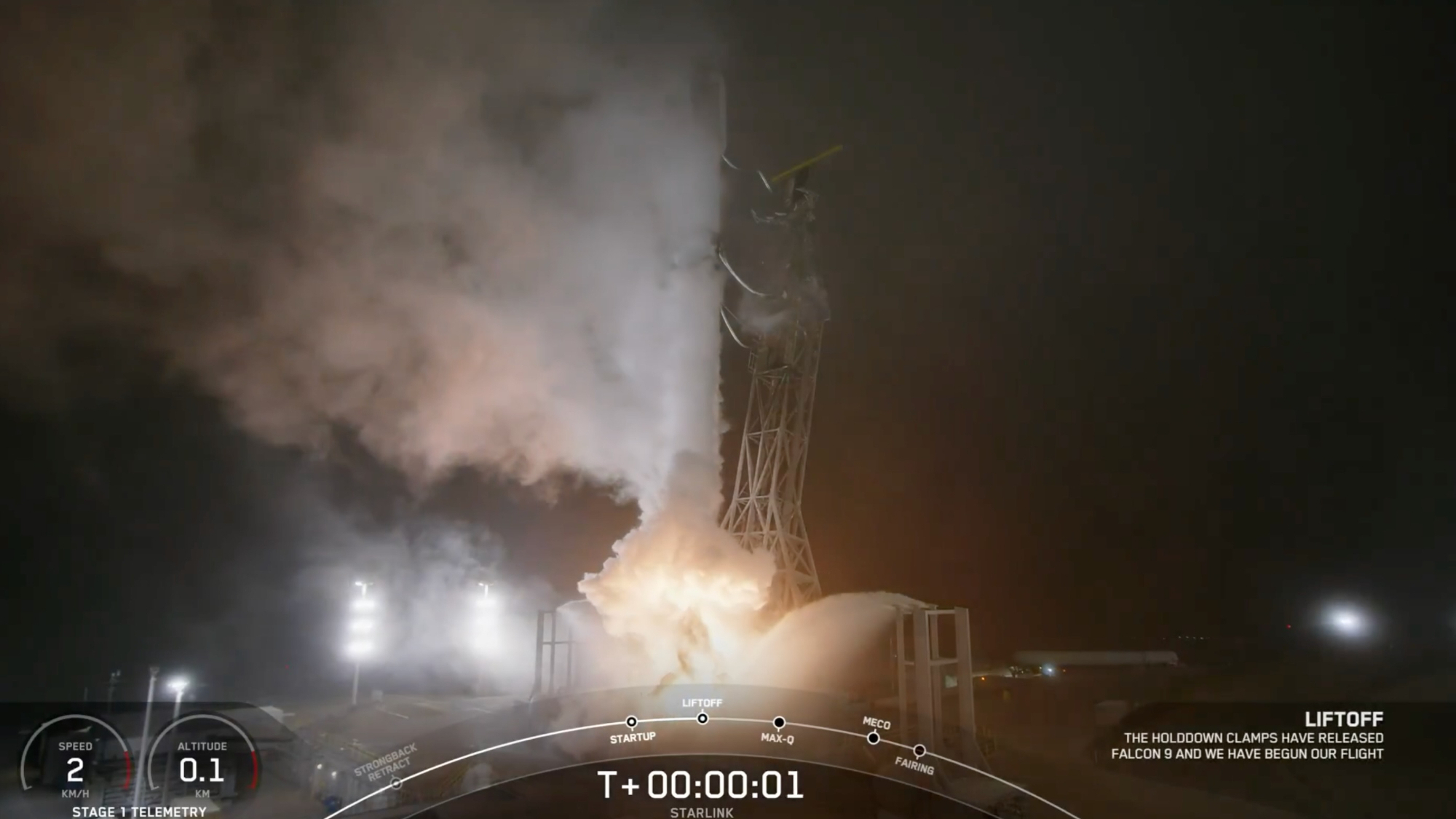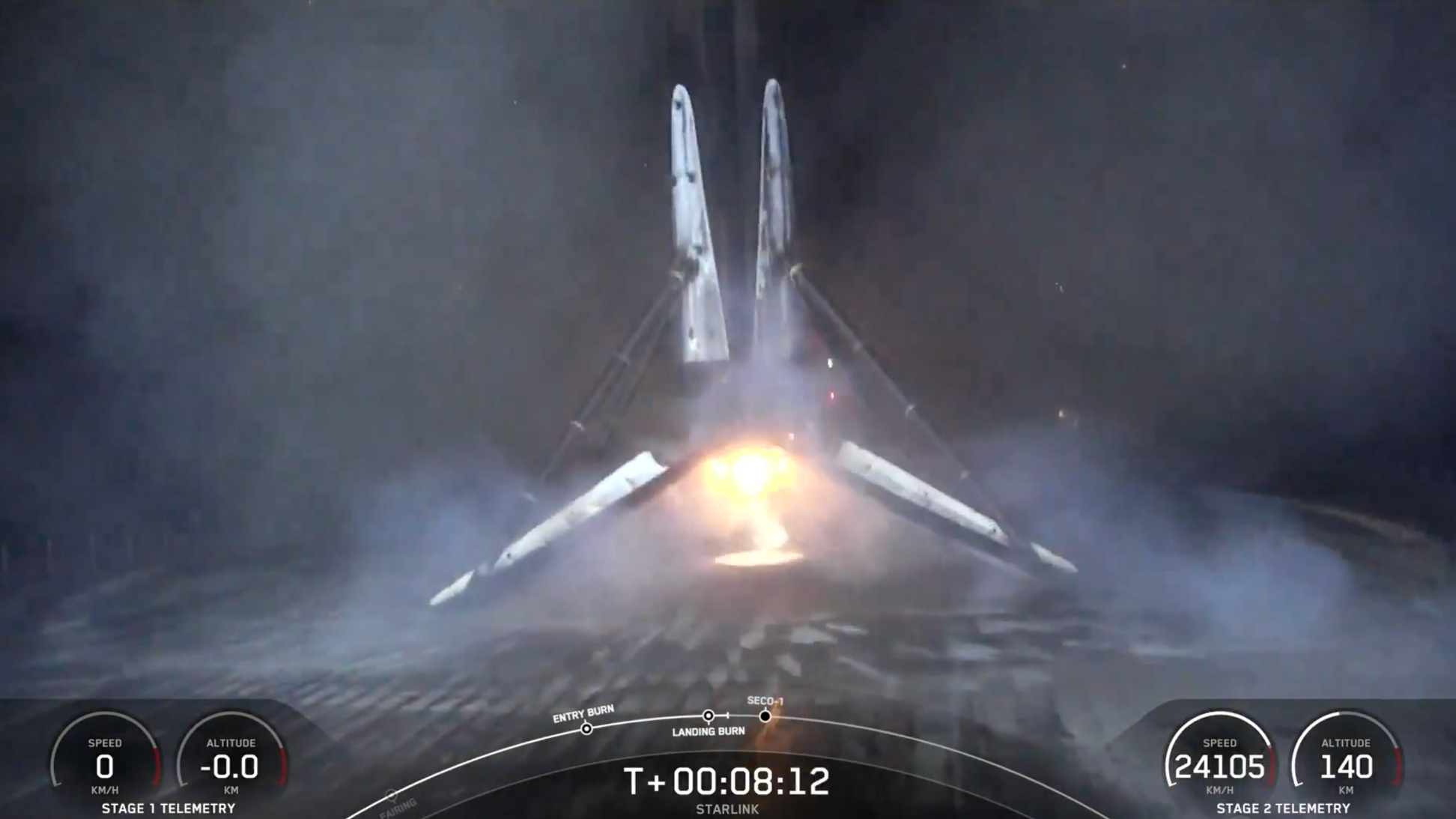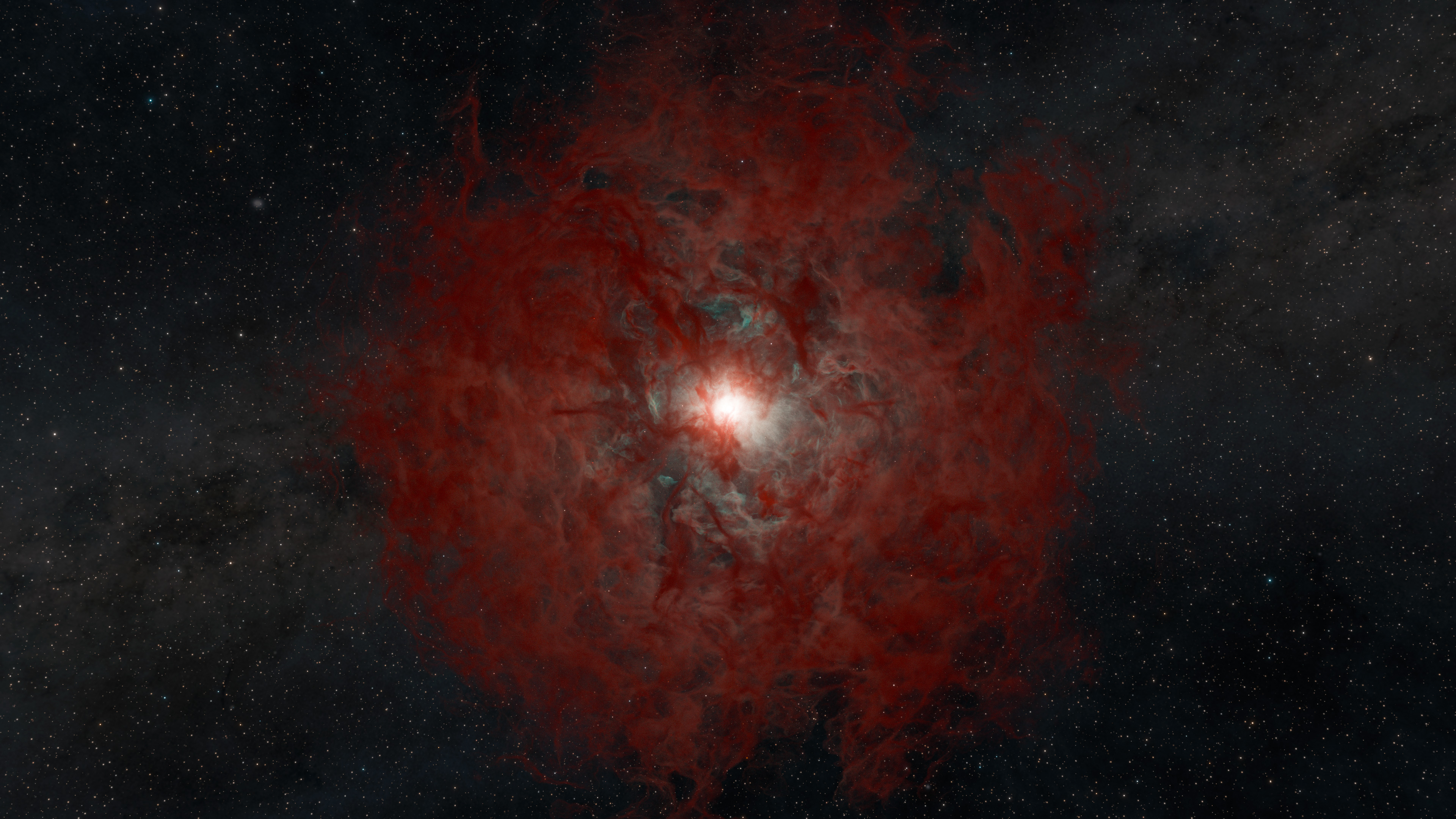SpaceX launches 20 Starlink satellites from California (video, photos)
Breaking space news, the latest updates on rocket launches, skywatching events and more!
You are now subscribed
Your newsletter sign-up was successful
Want to add more newsletters?

Delivered daily
Daily Newsletter
Breaking space news, the latest updates on rocket launches, skywatching events and more!

Once a month
Watch This Space
Sign up to our monthly entertainment newsletter to keep up with all our coverage of the latest sci-fi and space movies, tv shows, games and books.

Once a week
Night Sky This Week
Discover this week's must-see night sky events, moon phases, and stunning astrophotos. Sign up for our skywatching newsletter and explore the universe with us!

Twice a month
Strange New Words
Space.com's Sci-Fi Reader's Club. Read a sci-fi short story every month and join a virtual community of fellow science fiction fans!
SpaceX launched 20 more of its Starlink internet satellites from California early Monday morning (Nov. 18).
A Falcon 9 rocket carrying 20 Starlink spacecraft, including 13 with direct-to-cell capability, lifted off from Vandenberg Space Force Base at 12:53 a.m. EST (0553 GMT; 9:53 p.m. local California time on Nov. 17).
The Falcon 9's first stage returned to Earth as planned about eight minutes after liftoff, landing on the SpaceX droneship "Of Course I Still Love You" in the Pacific Ocean.

It was the 20th launch and landing for this particular booster, according to a SpaceX mission description. Thirteen of those flights have been Starlink missions.
The Falcon 9's upper stage continued hauling the Starlink satellites to low Earth orbit (LEO), deploying them on schedule about 62 minutes after liftoff.
SpaceX has launched more than 100 Falcon 9 missions in 2024, about two-thirds of them devoted to building out the Starlink network.
The megaconstellation currently consists of more than 6,600 active spacecraft, according to satellite tracker and astrophysicist Jonathan McDowell, 283 of which are direct-to-cell capable.
Breaking space news, the latest updates on rocket launches, skywatching events and more!
Editor's note: This story was updated at 2:30 a.m. ET on Nov. 18 with news of successful launch, rocket landing and satellite deployment.

Michael Wall is a Senior Space Writer with Space.com and joined the team in 2010. He primarily covers exoplanets, spaceflight and military space, but has been known to dabble in the space art beat. His book about the search for alien life, "Out There," was published on Nov. 13, 2018. Before becoming a science writer, Michael worked as a herpetologist and wildlife biologist. He has a Ph.D. in evolutionary biology from the University of Sydney, Australia, a bachelor's degree from the University of Arizona, and a graduate certificate in science writing from the University of California, Santa Cruz. To find out what his latest project is, you can follow Michael on Twitter.

